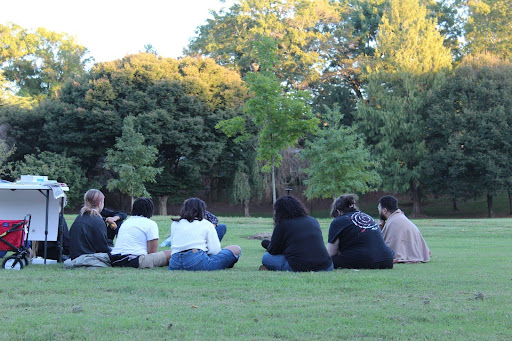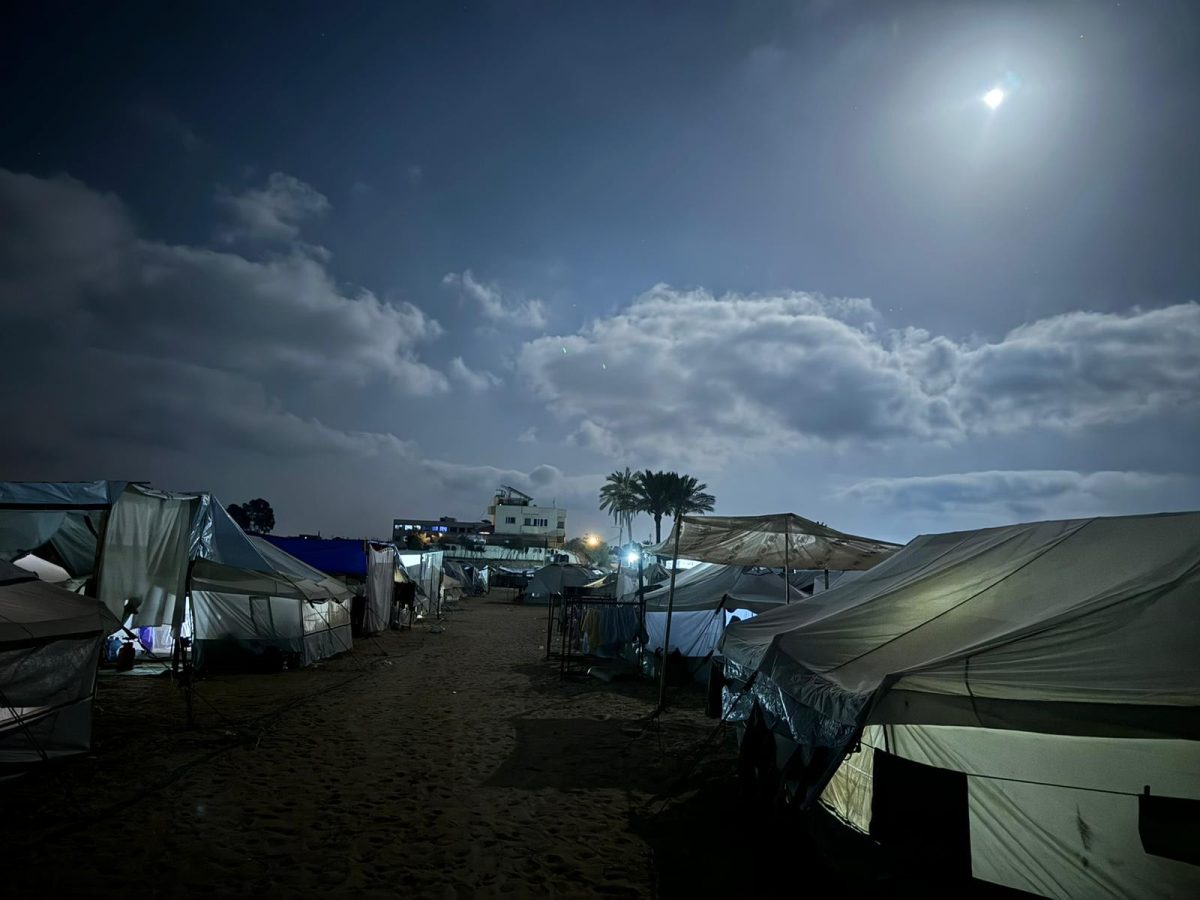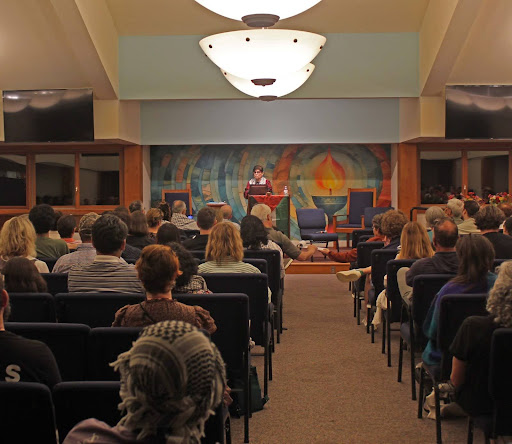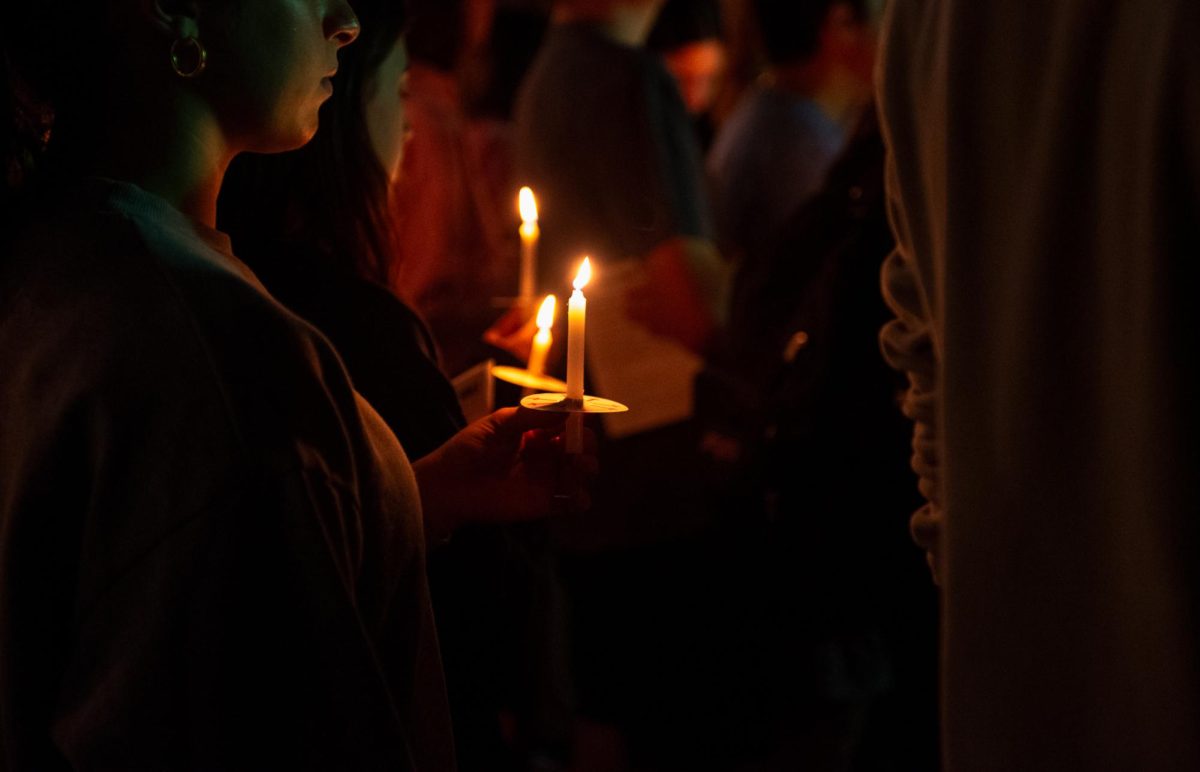To incite conversation about how the Israel-Hamas war impacts those with Christian backgrounds, senior Hazik Azam brought three campus ministries together for a Faith Forum titled “Christian Perspectives on the Middle East Crisis.”
“I felt there wasn’t the same room being given towards students of Christian backgrounds or denominations to speak about what was going on,” Azam said.
Held on April 8 in Pugh Auditorium, the event was moderated by Dean of the Divinity School Corey D.B. Walker. Daughter of Palestinian Christian refugee Hala Matalka, who is on staff at Redeemer Presbyterian Church, as well as leaders from Reformed University Fellowship (RUF), Baptist Student Union (BSU) and Episcopal Student Fellowship (ESF) spoke about how their faith impacts their perspective on the conflict.
“It seems like it’s a Muslim and Jewish conflict, but it’s not because there are Christian Palestinians who are still mistreated and humiliated,” Matalka said. “The Palestinian Christians feel the same way the Muslims do about their land, stolen and controlled.”
The event centered on the current Israel-Hamas war, which began on Oct. 7, when the Palestinian militant group Hamas launched a surprise attack on Israeli towns bordering the Gaza Strip — a Palestinian territory that Israel and Egypt have blockaded for 16 years (Editor’s Note: The Old Gold & Black follows AP Style guidance, which is to refer to Hamas as a militant group). The attacks resulted in the death of approximately 1,200 Israelis. Individuals who identify as Christian make up approximately two percent of Israel’s adult population.
In response, Israel has carried out air strikes and sent troops into Gaza, which, according to the Gazan Health Ministry, has killed over 30,000 people. As of December 2023, there were approximately 1,000 Christians in Gaza, according to The Wall Street Journal — a number that has been decreasing for years. On Oct. 19, the Greek Orthodox Church of St. Porphyrius — Gaza’s oldest active church — was struck, killing 18 people and injuring at least 20. Approximately 400 civilians, mainly Christian, were taking shelter in the church compound.
Across campus, students and faculty have hosted events in response to the Israel-Hamas war, including a teach-in organized by professors and vigils held by the Jewish community and the Muslim Student Association (MSA). Wake Forest Chabad and Hillel invited Lee Sasi, a survivor of Hamas’ Oct. 7 attack on the Nova Music Festival, to campus to share her story. Alongside these events, an anonymous group of students organized a display that included banners and white flags arranged on campus. The Faith Forum was the first event held since Oct. 7 that centered on Christian’s response to the Israel-Hamas war.
Episcopal Student Fellowship Minister James Franklin explained that his Christian faith led him to advocate for peace in the Middle East. His decision to speak at the forum resulted from observing the hurt his students have experienced since Oct. 7.
“Our traditions all say that we’re going to love, and when we hear that someone’s hurting we answer the call,” Franklin said. “We’re all just a bunch of bleeding hearts.”
He explained that he feels that a ceasefire is necessary to move forward.
“I just want to say we need a ceasefire,” Franklin said. “We come from a tradition that is rooted in restorative justice and not retributive justice, and I’m frustrated that it seems like that’s the only narrative.”
Franklin also referenced Philippians 4:7, a passage in the New Testament of the Bible, as a basis for which he builds his views.
“I’m approaching this conversation today from a place of peace, both very literally and also peace from a Christian perspective as a peace that passes all understanding, which Jesus gives to us,” Franklin said.
The discussion then shifted to a conversation about how students can understand the Israel-Hamas war and support each other. Christopher Towles, campus minister of the BSU, emphasized finding “compromise” through discourse.
“Simplifying things to be either pro-Palestine or pro-Israel and coming into conversations with no intent to compromise are other aspects of what makes it frustrating and makes people not want to engage in conversations,” Towles said.
Agreeing with Towles, RUF Campus Minister Chris Horne called students to take action as individuals and within their community at Wake Forest.
“What I’ve noticed pastorally here is that there’s a fear to engage because there’s a fear that, if you engage with something in the wrong way, you’ll be punished in some way,” Horne said. “I want to encourage each of you to think deeply and compassionately even if you’re afraid. I also encourage you to build deep friendships with folks that you don’t quite understand because I think it really matters right now.”
After the forum concluded, Intern for RUF Slaton Schneider reflected on what she took away from the forum.
“It was an affirmation to my faith that as Christians we are called to bring about justice and love,” Schneider said.
Freshman Ella Allen attended the talk because she wanted to learn how to relate greater world issues to her faith.
“I think the Christian perspectives that they had were really interesting ones,” Allen said. “I learned that it’s really important to look at a mixture of identities and realize how that informs their view of what’s going on.”





















